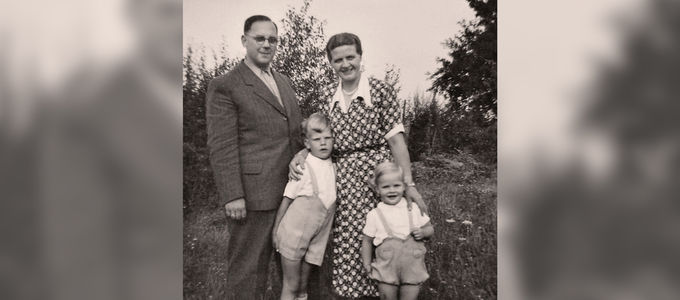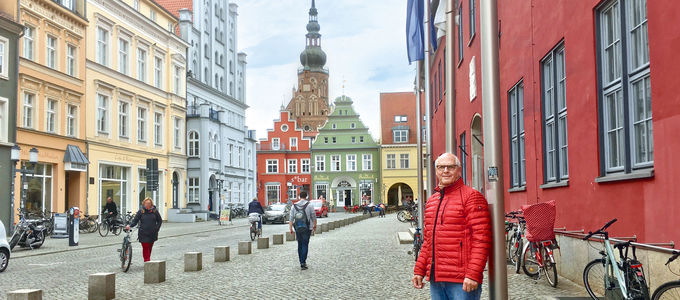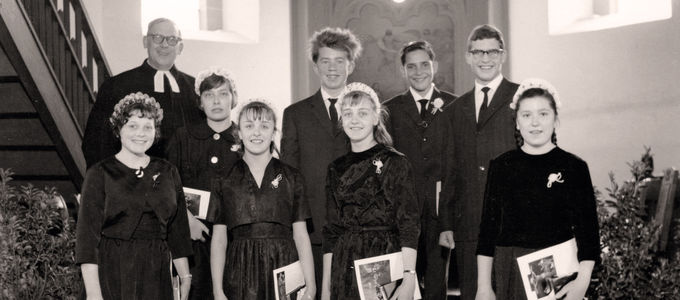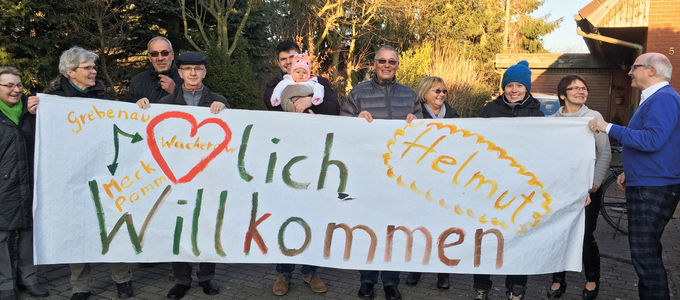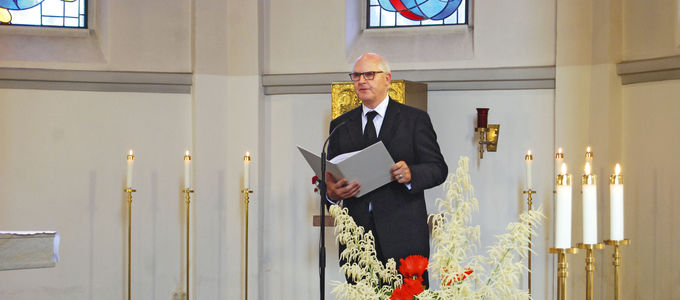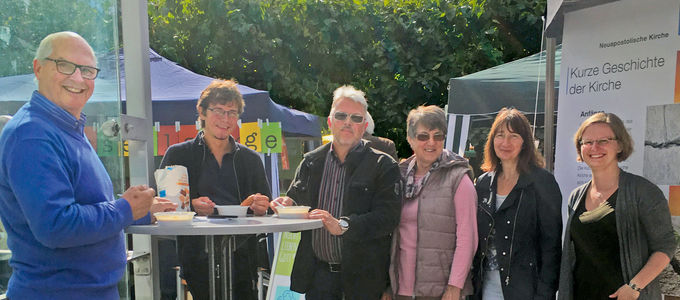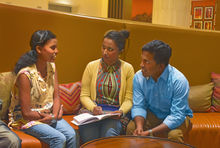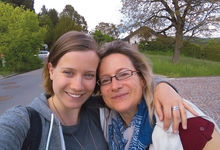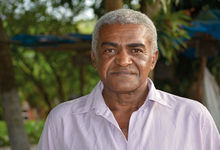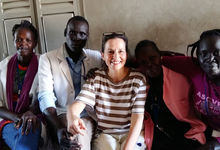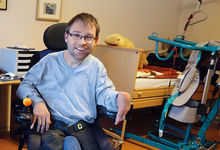The family at the core of interfaith dialogue
He grew up as the son of a Protestant pastor. At the age of 24, Helmut Strippel converted to the New Apostolic faith. Today, Helmut, a retired Priest, is active in the Council of Christian Churches in Germany (CCCG).
What is it like to grow up as the son of a Protestant pastor?
You were kind of under surveillance, of course, but there were also advantages. As a child, for example, I was often allowed to come along to other people’s family celebrations. On the other hand, if I got into mischief, my parents usually knew about it before I came home. As long as I was living at home it was taken for granted that I would attend the services regularly and help along, for example, in ringing the church bells and lighting the candles. The only time we ever went on weekend outings was when my father was on holiday. But this was completely normal to me as a child and I did not feel restricted.
How and when did you come into contact with the New Apostolic faith?
I met a pretty young girl while I was out sailing, who never had time on Sundays. When I asked her I discovered that she always went to church on Sundays in the New Apostolic Church in the neighbouring town. I was curious, of course, and so we often attended the New Apostolic services together. At one of the first services, a divine service for the departed, I had an encounter with the world beyond which was completed unexpected for me, and which was to shape my future life of faith.
What made you decide for the New Apostolic Church?
Initially, of course, my girlfriend—my future wife—and her family, and the friendly welcome in the congregation through the ministers and members. The sermons, delivered without manuscripts and by people with very different characters, fascinated me, and it felt as though God was addressing me personally. The decisive and most important part for me, however, was that the divine services always touched me spiritually.
How did you tell your family that you were planning on becoming New Apostolic?
As the day of my adoption into the New Apostolic Church was approaching, I found it increasingly difficult, emotionally, to tell my parents about it. I did not want to hurt them and at the same time I did not want to throw my personal experiences of faith overboard. One evening I finally got into the car and went to see my parents to tell them about my decision. It was a very emotional evening! Our conversation finally ended in an atmosphere of tolerance and mutual understanding—something I had hoped for but had not necessarily counted on.
How did the relationship with your parents develop in the following years?
The Apostle drew my attention to the fact that the fourth commandment, “Honour your father and mother”, should have a special significance for me. In order to show my parents esteem and that I still cared, I often attended my father’s church services with my wife and parents-in-law on holidays. For me, the most beautiful comment from my father after the baptism and sealing of our daughter was to Apostle Schilling: “Thank you for baptising and sealing my granddaughter today in the name of the Father, the Son, and the Holy Spirit!”
After you retired, you moved to Germany’s Baltic coast, where a new congregation was waiting for you. You are an interfaith delegate. How did that come about?
The congregation of Greifswald was celebrating its centenary, and Apostle Jörg Steinbrenner conducted the divine service at the time. Pastor Mathias Tuve, the chairman of the regional Council of Christian Churches brought us the message that the New Apostolic Church had been admitted as a guest member, underlining it with the symbolic gesture of bread and salt. When I heard the words “ecumenism” and “guest membership” I was visibly delighted. Apostle Steinbrenner noticed this. He asked me about it. I told him about my memories and the fact that we as a family had been practising interfaith dialogue for many years. After a while the Apostle asked whether I would be prepared to support our rector in this, and I said yes.
What does it mean to you as a New Apostolic Christian to be contribute to interfaith dialogue?
On account of the tolerance and acceptance of other creeds, which we practise in my own family, I practically feel obligated to help along in bringing this dialogue forward, and I support it gladly. My life has been shaped through close contact with Protestant and New Apostolic family members. Thanks to this I made the experience that mutual respect and acceptance of one’s neighbour in the Christian sense can be and must be practised. That is interfaith dialogue for me at the smallest level, the family. Based on this experience I can and would like to commit myself to the wider interfaith dialogue and help in eliminating prejudices and, if necessary, misunderstandings. I would like to enter into dialogue with all Christians about the things we have in common, based on our Saviour Jesus Christ, and strengthen one another. That is my wish.
Article info
Author:
Date:
Keywords:
Dinara Ganzer,
Andreas Rother
21.03.2019
Denominations,
Congregational life,
People/Personalities


